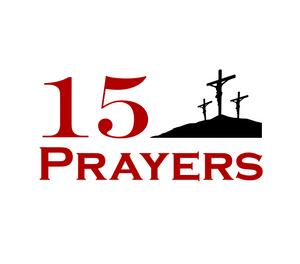
Book II
A review of the calamities suffered by the Romans before the time of Christ, showing that their gods had plunged them into corruption and vice.
Chapter 1
Of the limits which must be put to the necessity of replying to an adversary.
Chapter 2
Recapitulation of the contents of the first book.
Chapter 3
That we need only to read history in order to see what calamities the Romans suffered before the religion of Christ began to compete with the worship of the gods.
Chapter 4
That the worshippers of the gods never received from them any healthy moral precepts, and that in celebrating their worship all sorts of impurities were practised.
Chapter 5
Of the obscenities practised in honour of the mother of the gods.
Chapter 6
That the gods of the pagans never inculcated holiness of life.
Chapter 7
That the suggestions of philosophers are precluded from having any moral effect, because they have not the authority which belongs to divine instruction, and because man’s natural bias to evil induces him rather to follow the examples of the gods than to obey the precepts of men.
Chapter 8
That the theatrical exhibitions publishing the shameful actions of the gods, propitiated rather
than offended them.Chapter 9
That the poetical licence which the Greeks, in obedience to their gods, allowed, was restrained
by the ancient Romans.Chapter 10
That the devils, in suffering either false or true crimes to be laid to their charge, meant to do
men a mischief.Chapter 11
That the Greeks admitted players to offices of state, on the ground that men who pleased the
gods should not be contemptuously treated by their fellows.Chapter 12
That the Romans, by refusing to the poets the same licence in respect of men which they
allowed them in the case of the gods, showed a more delicate sensitiveness regarding themselves than regarding the gods.Chapter 13
That the Romans should have understood that gods who desired to be worshipped in licentious entertainments were unworthy of divine honour.
Chapter 14
That Plato, who excluded poets from a well-ordered city, was better than these gods who
desire to be honoured by theatrical plays.Chapter 15
That it was vanity, not reason, which created some of the Roman gods.
Chapter 16
That if the gods had really possessed any regard for righteousness, the Romans should have
received good laws from them, instead of having to borrow them from other nations.Chapter 17
Of the rape of the Sabine women, and other iniquities perpetrated in Rome’s palmiest days.
Chapter 18
What the history of Sallust reveals regarding the life of the Romans, either when straitened
by anxiety or relaxed in security.Chapter 19
Of the corruption which had grown upon the Roman republic before Christ abolished the
worship of the gods.Chapter 20
Of the kind of happiness and life truly delighted in by those who inveigh against the Christian religion.
Chapter 21
Cicero’s opinion of the Roman republic.
Chapter 22
That the Roman gods never took any steps to prevent the republic from being ruined by
immorality.Chapter 23
That the vicissitudes of this life are dependent not on the favour or hostility of demons, but
on the will of the true God.Chapter 24
Of the deeds of Sylla, in which the demons boasted that he had their help.
Chapter 25
How powerfully the evil spirits incite men to wicked actions, by giving them the quasi-divine
authority of their example.Chapter 26
That the demons gave in secret certain obscure instructions in morals, while in public their
own solemnities inculcated all wickedness.Chapter 27
That the obscenities of those plays which the Romans consecrated in order to propitiate their
gods, contributed largely to the overthrow of public order.Chapter 28
That the Christian religion is health-giving.
Chapter 29
An exhortation to the Romans to renounce paganism.

